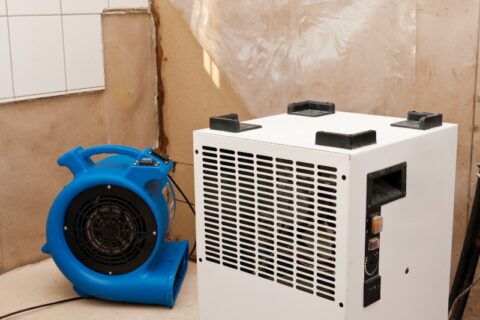How to Prepare Your Home Before Earthquakes
- Make sure your home is structurally prepared for an earthquake. Especially if your home was built before 2000, it may not be able to withstand a major earthquake. Houses used to be built to withstand vertical loads, which basically meant the weight of the house and its contents. When an earthquake hits, however, the ground doesn’t move vertically, it moves in a linear direction. If your house is not reinforced to handle this lateral movement, it could slide right off of its foundation. Consider bringing in a structural engineer to advise you, and be prepared to retrofit your home’s structure, including the foundation, to make it more resistant to earthquake damage. Think about the structural weak points of your home, and take steps to make your home safer in an earthquake.
- Windows: At the very least, apply safety film. You might, however, want to invest in large windows and sliding doors tempered with laminated glass.
- Garage: Reinforce the garage door with steel or plywood on each side to make your garage more resistant to earthquakes.
- Roof: When it’s time to replace your roof, look for an earthquake-friendly material like aluminum, wood, and asphalt, rather than brick or terra cotta.
- Brick chimneys: Brick chimneys can essentially become projectiles in an earthquake, so decide what to do about yours. You can either cap it to roof height, make the fireplace unusable, reconstruct the top to maintain the brick base while replacing the upper portion with a lighter material like siding stucco, or brick veneer. The safest route, though, is to replace the entire chimney with a lighter material.
- Home systems: If your home’s water, gas, and HVAC systems are damaged in an earthquake, they can damage your home. Look for the latest, earthquake-safe technology, to avoid this risk. Consider an earthquake natural gas shutoff valve, which turns off your natural gas during seismic activity. Secure your HVAC system, and consider a tankless water heater. Traditional water heaters can weigh up to 500 pounds when full, making them deadly in an earthquake. In earthquake-prone regions, they’re required to be double strapped for safety, but a tankless water heater is an even safer option.
- Take care to secure your belongings in case of a quake. Did you know that most injuries in an earthquake are the result of heavy furniture and household objects falling on people? Spend a weekend assessing your home décor, and make sure everything is secure.
- Bolt all hanging items into wall studs.
- Use earthquake-safe hooks instead of picture hooks.
- Use a reusable adhesive to stick the bottoms of decorative items to shelves.
- Secure large items like dressers and bookshelves to the walls.
- Store any flammable liquids away from possible ignition sources.
- Make sure fire extinguishers and fire blankets are readily accessible.
- Create an earthquake safety plan for your family. The tricky thing about an earthquake is that, unlike other natural disasters, the next earthquake cannot be predicted. That’s why it’s so important to have a safety plan in place before an earthquake hits. During an earthquake, shelter in place, cover your head, crawl under a sturdy piece of furniture, and stay away from glass. Plan for one or two weeks of disaster preparedness, having food, water, and first aid on hand to get you through an extended time. Keep a survival kit in your home with basic supplies, and keep emergency supplies in your car as well.
- Know what to do after an earthquake. Be prepared for the hazards that come along with an earthquake, including flooding, tsunami, landslide, and fire. Check yourself and others for injuries, calling 911 for anyone seriously injured. Stay away from damaged buildings, and call for expert home restoration rather than trying to take care of your earthquake-damaged home on your own.
Sometimes, even the best preparation can’t make your home completely earthquake-proof. If you need help cleaning up after an earthquake, call the experts at Pacific Flood Restoration. We offer full-service, 24-hour, on-call emergency services, and we’ve earned a reputation for being dependable, on time, courteous, and ethical. No matter the extent of your damage, our trained technicians have the experience, proven techniques, and state-of-the-art equipment to restore your home in the North County San Diego area, fixing whatever damage it may have sustained. Call 760-815-3033, or contact us through our website.


